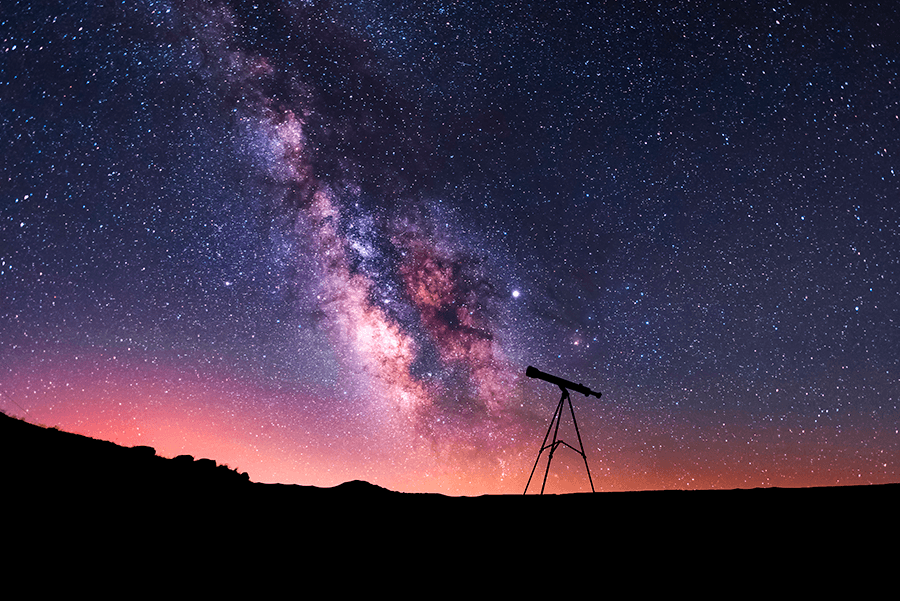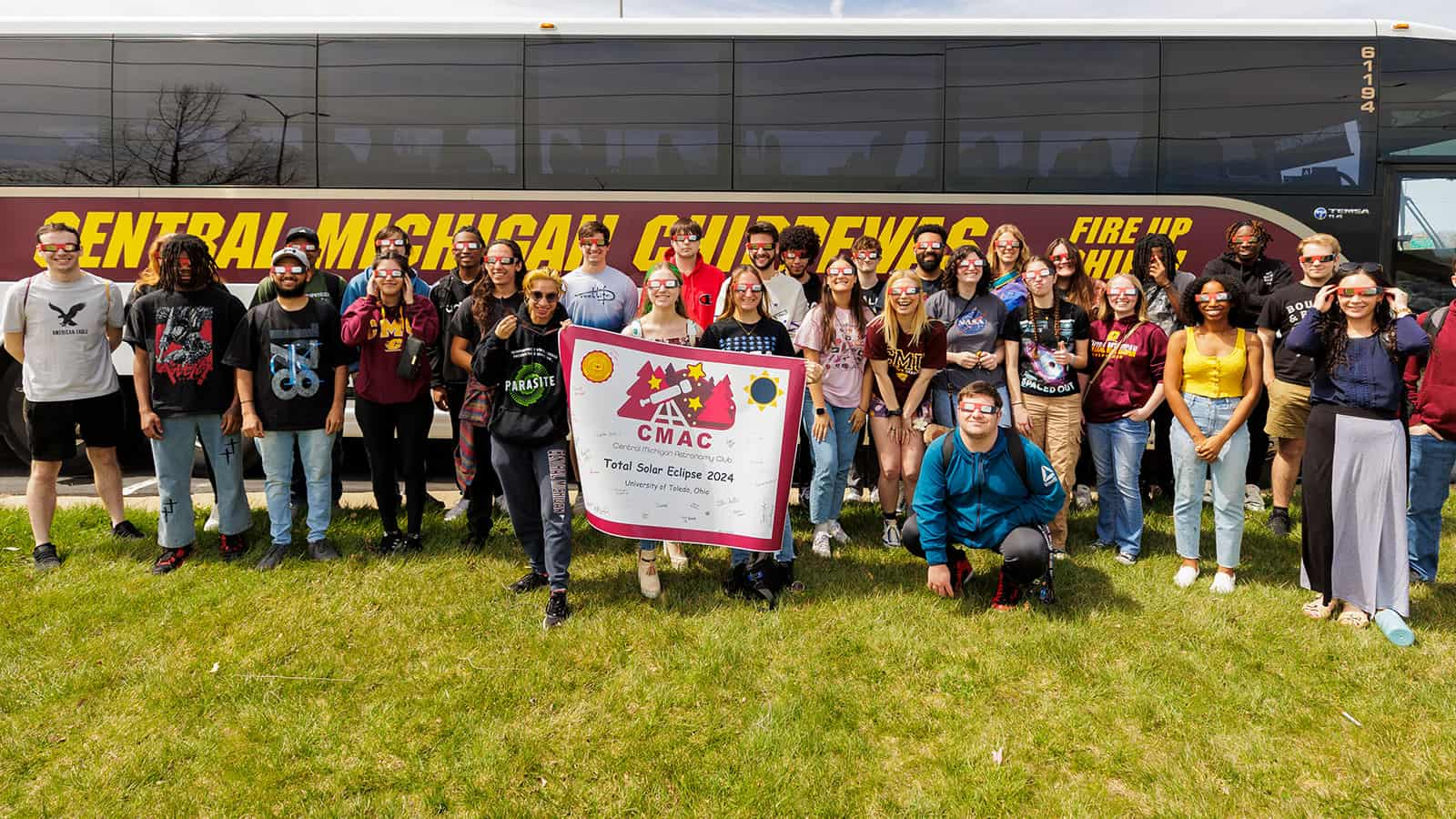


Astronomy and Astrophysics
Major
Astronomy and astrophysics overview
Turn your passion for stargazing into a rewarding career with a major in astronomy and astrophysics. Explore the mysteries of the universe through hands-on experience and in-depth coursework in astronomy and astrophysics. You'll develop critical skills in physics, mathematics, engineering and computer science; preparing you for diverse career opportunities in space research, technology and beyond.
AT A GLANCE
Why study astronomy and astrophysics at CMU?
As an astronomy and astrophysics student you'll study thermal physics, quantum theory, astrophysics, observational astronomy, mathematical physics and more. And with a student to faculty ratio of 3:1, you'll do so with individual and personalized attention from experts in this field. Working closely with a faculty advisor, you'll complete a final project that demonstrates your knowledge of astronomy and astrophysics. When you graduate as an astronomy and astrophysics major, you'll be prepared for competitive graduate programs and many careers.
You'll also gain hands-on research experience with access to our Brooks Astronomical Observatory and other state-of-the-art resources, including:
- Brooks Research Hub: Complete with computers, a darkroom and a library housing over 1,000 volumes of observatory publications, catalogs, charts and atlases.
- Brooks Astronomical Observatory: Search the skies with a 16-inch (40 cm) advanced computer-controlled telescope that is equipped for CCD direct imaging, UBVRI photometry, medium-dispersion spectroscopy, as well as visual observing.
- Specialized physics laboratories: Equipped for laser spectroscopy, magnetic resonance, thin films and X-ray diffraction.
You'll gain significant physics experience for your future career or graduate program. Many students present their research at national venues. More than 50% of our students participate in research programs and a significant portion of those are research assistants. As a result of opportunities like these, nearly 100% of graduating students secure jobs or gain admittance into graduate programs.
Highlights of our astronomy and astrophysics program
Explore the stars and your potential, our astronomy and astrophysics program offers resources and opportunities for you:
- Excellent career outcomes: Join a program in which nearly 100% of graduating students secure jobs or gain admittance into graduate programs.
- Observational astronomy access: Explore the stars with access to the Brooks Astronomical Observatory and its $100,000 computer-controlled Cassegrain reflector telescope.
- Research funding: Study in a department in which physics faculty consistently secure more than $2 million dollars of annual research funding.
- Scholarship opportunities: You're eligible to receive the Kenneth Wright Physics, David H. Current or Kenneth W. And Margaret Cuff Saunders scholarships.
- Living and learning in STEM: Live in our Science & Engineering Residential College. Form relationships with STEM faculty, professionals and alumni. And access personalized tutoring, academic advising and career-related programs, right where you live.
- Get involved with RSOs: Meet other aspiring physicists, astronomers, astrophysicists and STEM professionals as a member of the Society of Physics Students.
Astronomy and astrophysics careers
With a degree in astronomy and astrophysics you’ll be prepared for a variety of careers related to physics, mathematics, engineering, computer science and more.
| Career | Projected Salary |
|---|---|
| Physicist | $166,290 |
| Data Scientist | $112,590 |
| Physical Scientist | $119,050 |
| Research Scientist | $100,590 |
| Research Assistant | $62,370 |


To infinity and beyond!
CMU’s Astronomy Club is a fun and welcoming group for students who love space and want to learn more about the universe. The club hosts stargazing nights, planetarium trips and cool guest speakers to dive into everything from black holes to distant planets. You don’t need to be a science expert—anyone with an interest in space can join and explore with us. Members also get to take part in hands-on activities, research projects and events that bring astronomy to the community.
Request Information about CMU
By submitting this form, I agree to receive calls, emails and/or text messages from Central Michigan University to discuss furthering my education.